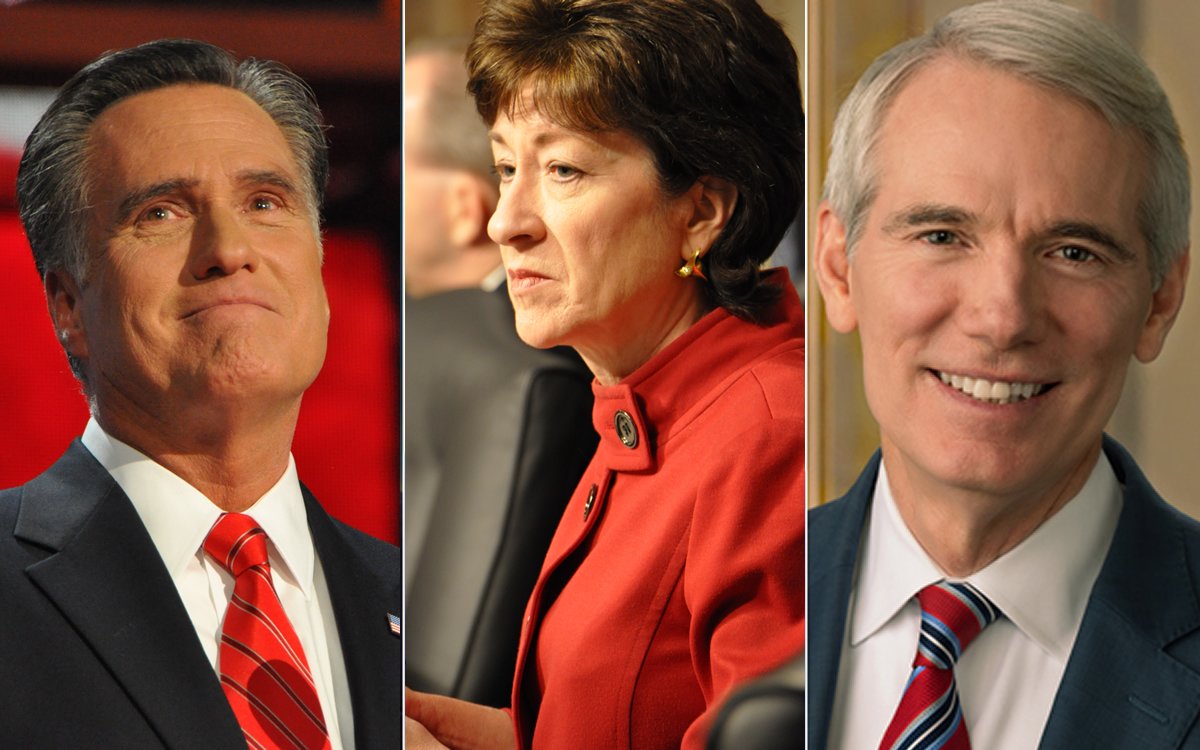According to Deseret News, before the U.S. Senate voted to open debate Wednesday on the Respect for Marriage Act, three senators in their floor speeches acknowledged The Seventh-day Adventist Church and other faith groups.
The bipartisan bill (Senate Bill 4556), is an amended version of the House bill that codifies same-sex marriage protections in federal law. Concerns that the original bill lacked sufficient protection for people of faith caused some senators to reach out to religious organizations around the nation to collaborate on a workable compromise. The bill, as currently amended, is expected to pass a full vote of the Senate later this week.
“Achieving this kind of compromise could not have happened without hard work, good faith and bipartisan negotiation,” Sen. Rob Portman, R-Ohio, said during his Senate floor speech. “I want to extend specific thanks to the following groups that have worked with my colleagues and me to develop this legislation, including The Church of Jesus Christ of Latter-day Saints, known as the Mormon Church, the National Association of Evangelicals, Seventh-day Adventist Church, the Union of Orthodox Jewish Congregations of America,” and several other religious organizations.
Sen. Thom Tillis, R-N.C., also said he thought the bill was a good compromise. “I am grateful for the leadership of so many people who were involved,” Tillis said before listing co-sponsoring senators of the legislation. “But I also want to thank The Church of Latter-day Saints, the Seventh-day Adventists, the Council for Christian Colleges,” he said, while also listing a number of other religious organizations.
Sen. Susan Collins, R-Maine, asked that the church’s statement be included in the Senate record, as well as a combined letter of support signed by a group of intra-faith leaders including the Seventh-day Adventists, the Union of Orthodox Jewish Congregations of America, the Council for Christian Colleges and Universities, and others. Susan Collins’ website.
Here is a letter from Melissa Reid on behalf of the North American Division. What is a Director of Government Affairs, and why do we need one?
The 1996 Defense of Marriage Act (DOMA), preemptively barred federal recognition and benefits for married gay couples and seemed here to stay. It was adopted by nearly unanimous congressional majorities and signed by Bill Clinton in the middle of a presidential election year. Interestingly, it reflected the views of at least two-thirds of all Americans at the time.
Today, that view is changing, reminding us that huge moral changes that used to take a century to occur are now occurring in a space of 7-10 years. DOMA is about to be replaced by a pro LGBTQ Bill (we believe the ‘dis’Respect for Marriage Act will be passed into law within the next two weeks.
The Senate must still vote to approve the bill. The amended version will then have to pass in the House, where a large majority (including 47 Republicans) already backed it.
We took comfort in the belief that the Church was many decades behind the world in terms of what we accept. Now, that gap is all but erased. The church is “doing after the manner of the world” in many areas (Testimonies for the Church 5:209, 210 (1882).
In a 2019 Review article touting the Fairness for All Act, the authors, Bettina Krause, Melissa Reid and Dan Weber said this,
“The Equality Act isn’t wrong in what it seeks to do — that is, to prevent harassment and discrimination toward those who face hostility in many areas of civic life today.”
We don’t have to choose between religious freedom protection or equal civil rights protection for everyone in the public space. In fact, our beliefs and values as a church suggest these two broad goals are not at odds but complementary.
Yes, our commitment to religious freedom means that we will continue to assert, unequivocally, our right to express our faith and to administer our churches and institutions according to our biblical values and beliefs — including our beliefs about human relationships. We will also continue to defend the rights of individual church members to honor their conscience as employees and business owners.
Yet at the same time, should we not also affirm the right of every person to be treated with dignity and to have legal protection in secular employment, housing, credit and many other areas of life, regardless of whether we agree with their choices or beliefs? Adventists know that every human being is created in the image of God and deserves to be treated with compassion, dignity, and respect.”
Religious liberty protections are good, but not those that come with the cost of compromise on matters of high moral significance. It is my opinion that our religious liberty departments have largely sold out to culture over the years. The ‘dis’ Respect for marriage Act will potentially create more targeted bakers and Christian photographers who will likely be on their own against a hostile federal machine because it does not involve the Sabbath...
Remember, we are not legitimate, special, or even normal, simply because "three members of Congress acknowledged us. Let all who boast, boast in the Lord, and His righteousness and right standards.
****
The leaven of godliness has not entirely lost its power. At the time when the danger and depression of the church are greatest, the little company who are standing in the light will be sighing and crying for the abominations that are done in the land. But more especially will their prayers arise in behalf of the church because its members are doing after the manner of the world.—Testimonies for the Church 5:209, 210 (1882). LDE 83.1



